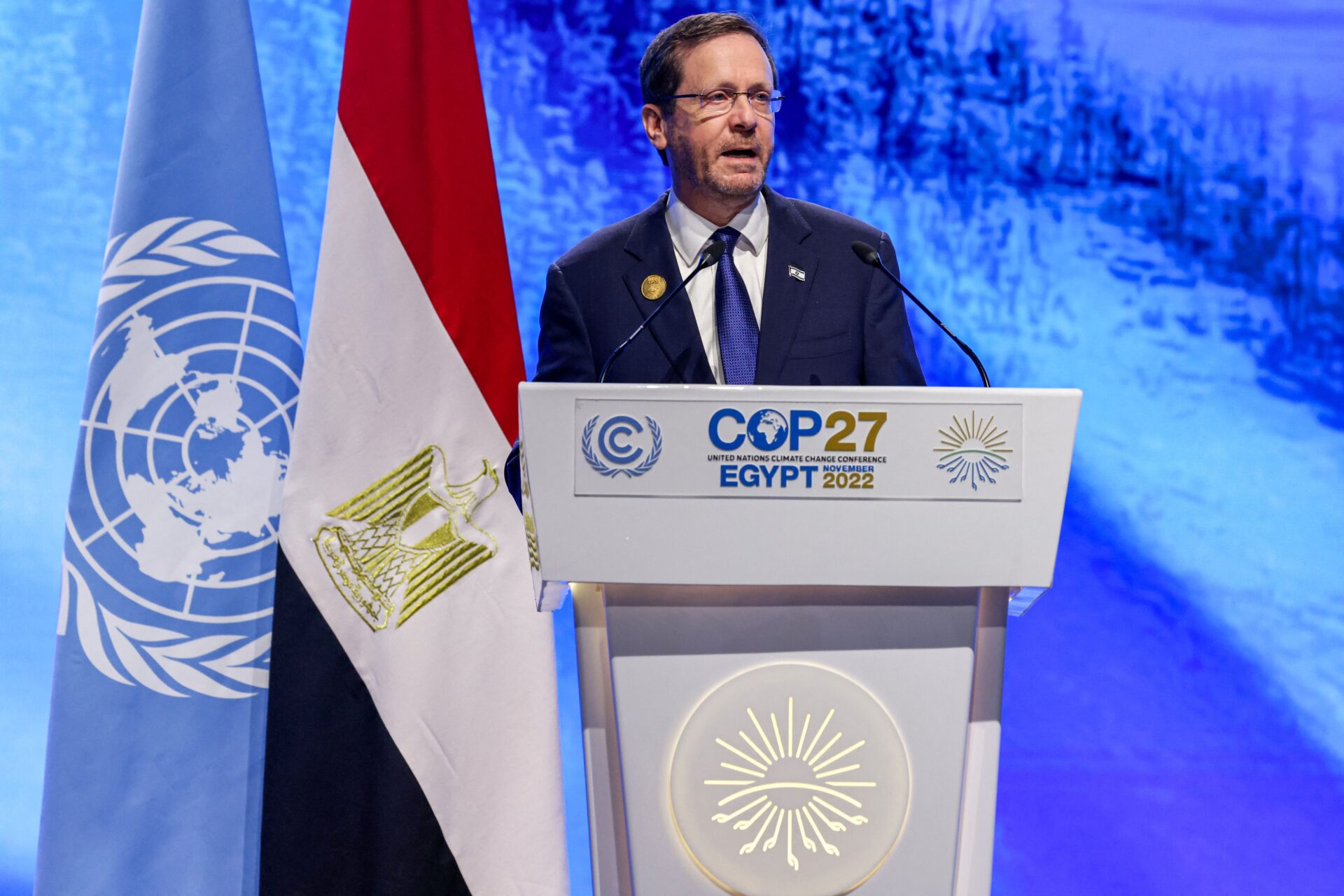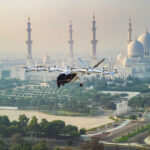Mideast mulls alliances at U.N. conference to avert environmental catastrophe
Israeli startup group reaches out to UAE, Bahrain, Morocco to share technology addressing desert agriculture, desalination and food security

AHMAD GHARABLI/AFP via Getty Images
Israel's President Isaac Herzog delivers a speech at the leaders summit of the COP27 climate conference at the Sharm el-Sheikh International Convention Centre
From lab-cultured milk to hydrogen-based energy generation, Israelis sought to share expertise in desert agriculture, desalination and food security with new Arab partners at the United Nations climate change summit and establish alliances across the Middle East and North...










